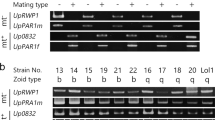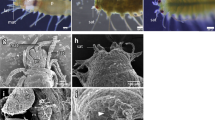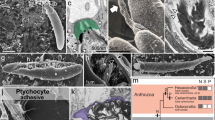Abstract
I THINK there can be little doubt that the Amœbæ referred to by Mr. Orton in NATURE of November 27 are not independent organisms, but constituents of the sponge from which he obtained them. I have been working for some time past at the problem of the origin of the germ cells in the common Grantia compressa, and have often found the flagellate chambers of the sponge crowded with am“boid cells, which can sometimes be seen actually squeezing themselves through the layer of collared cells. According to my observations, these am“bocytes are immature germ cells—;oogonia and spermatogonia—and they can often be seen undergoing mitosis in the chambers. A similar phenomena has been described in Sycon by Jrgensen. Possibly the am“boid cells squeezed out from the gastral cavity of Sycon by Mr. Orton were either of the same nature or else metamorphosed collared cells. The latter are very readily detached from their proper position in the sponge, and may then put out pseudopodia and come to resemble Am“b, as has long been known.
This is a preview of subscription content, access via your institution
Access options
Subscribe to this journal
Receive 51 print issues and online access
$199.00 per year
only $3.90 per issue
Buy this article
- Purchase on Springer Link
- Instant access to full article PDF
Prices may be subject to local taxes which are calculated during checkout
Similar content being viewed by others
Author information
Authors and Affiliations
Rights and permissions
About this article
Cite this article
DENDY, A. Amœbocytes in Calcareous Sponges. Nature 92, 399 (1913). https://doi.org/10.1038/092399b0
Published:
Issue Date:
DOI: https://doi.org/10.1038/092399b0
Comments
By submitting a comment you agree to abide by our Terms and Community Guidelines. If you find something abusive or that does not comply with our terms or guidelines please flag it as inappropriate.



